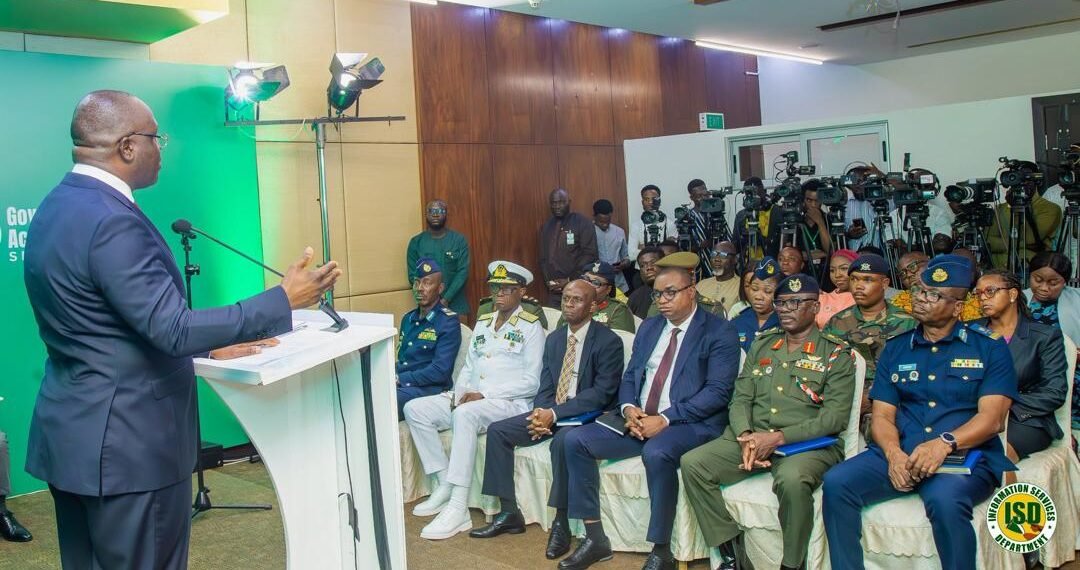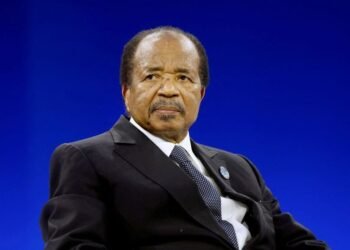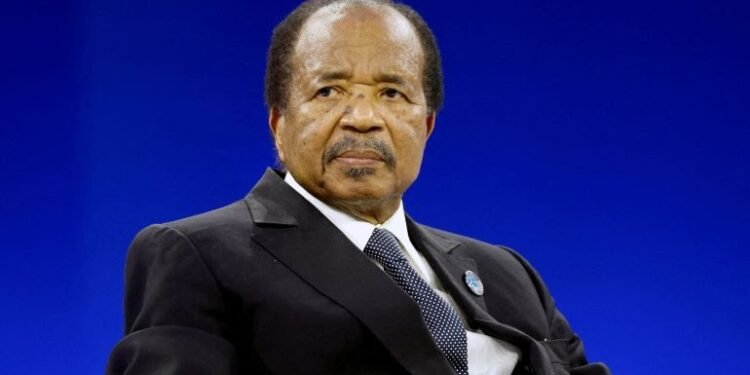The Minister for Defence, Dr Edward Omane Boamah, has pledged a comprehensive transformation of the Ghana Armed Forces (GAF), affirming the government’s unwavering commitment to addressing the many challenges facing the institution.
Speaking at the Government Accountability Series held at the Jubilee House, Dr Omane Boamah offered a candid assessment of the inherited state of the Ministry of Defence, revealing a troubling legacy of debt, inadequate infrastructure, and institutional neglect.
“Let me first acknowledge with candor that the Ministry of Defence, like all critical institutions of state, inherited substantial constraints in January 2025. Some of which continue to test our resolve daily.”
Minister for Defence, Dr Edward Omane Boamah
Among the most pressing of these constraints is a debt burden exceeding GHS 3.7 billion. He further disclosed that the current military high command recently uncovered an additional $32 million owed by the Ghana Armed Forces.
According to the Minister, these legacy debts continue to constrain the Ghana Armed Force ability to invest adequately in critical defence priorities and welfare infrastructure.
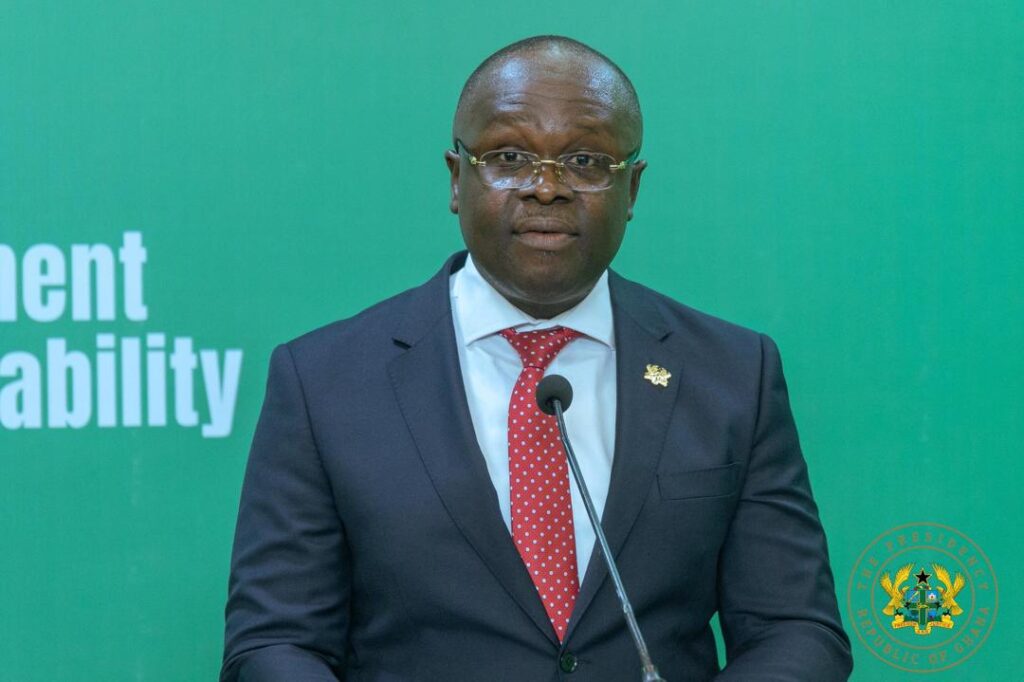
Accomodation Deficit
One of the most alarming indicators of the state of the GAF is the massive 17,000-unit accommodation deficit for military personnel. Dr Omane Boamah underscored that these are not abstract figures but real burdens that “affect operational readiness, troop morale, and the dignity of service.”
He was quick to add, however, that his statement was not a lamentation but a reaffirmation of the government’s determination to resolve the problems.
“First, by acknowledging that they exist, and deciding that never again should the government mismanage the nation’s economy to this depressing level, we are fixing the challenges. Our well-designed programs are working.”
Minister for Defence, Dr Edward Omane Boamah
Dr Omane Boamah stressed that the government is already implementing well-structured interventions designed to restore and modernize the defence sector.
He outlined a 15-point action plan intended to overhaul GAF operations and morale over the next three and a half years. At the centre of this agenda is a GHS 1 billion investment into the modernisation of the Ghana Armed Forces. This will cover new advanced tactical vehicles, body armour, and digital communication systems for the Army.
The Navy will also see significant improvements through the procurement of enhanced patrol vessels and radar systems to bolster maritime security.
The Air Force is to receive new air assets, including unmanned aerial vehicles (UAVs), to enhance their ability to respond to both conventional threats and emerging challenges.
On the welfare front, the Minister announced the construction of 10,000 new housing units across all military garrisons, directly aimed at reducing the severe accommodation deficit.
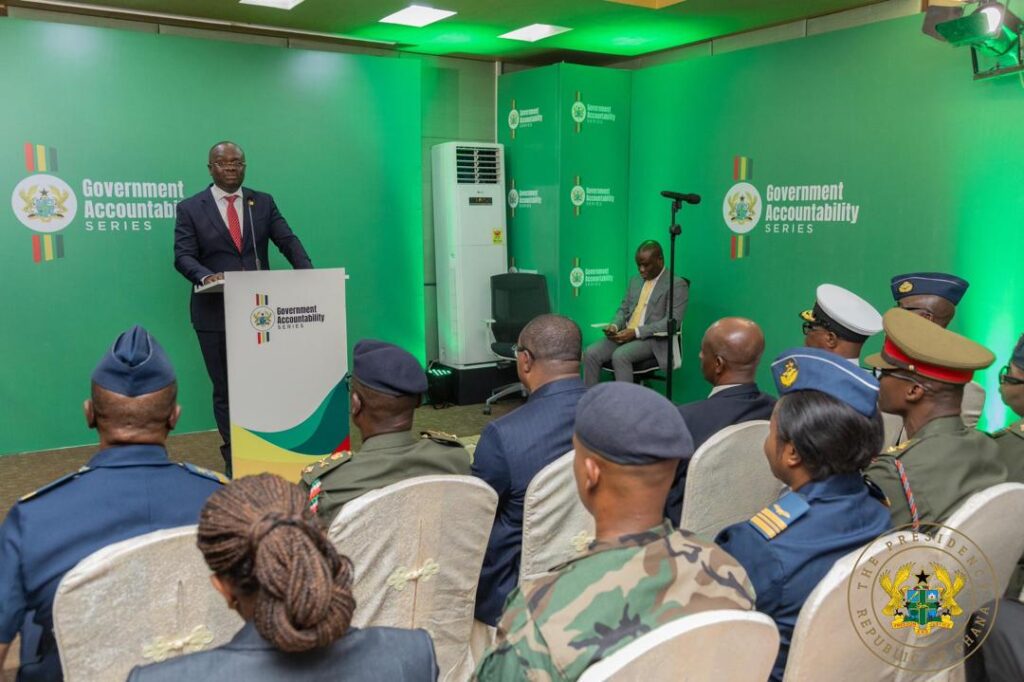
GAF’s Personnel Boost
Furthermore, the Ghana Armed Forces will see its personnel strength increased by 12,000 new recruits, a move intended to boost operational efficiency and presence. Strategic partnerships, both bilateral and multilateral, are also being prioritized.
“We are strengthening our alliances as part of a broader vision of defence industrialization,” Dr Boamah noted, with specific reference to DIHOC (Defence Industries Holding Company) as a key player in enhancing local production capabilities for military and civilian use.
Aligning this transformation with the Reset Ghana Agenda, the Defence Ministry is ensuring that its objectives contribute directly to national development.
Dr Omane Boamah listed current and emerging security challenges—such as chieftaincy disputes, illegal mining (galamsey), violent extremism, and climate-related threats like floods and droughts—as areas requiring not just preparedness but proactive intervention.
The Minister also emphasized gender inclusion, promising greater diversity within the Armed Forces. Attention is also being directed towards the welfare of veterans, with the Mahama administration committing to improved healthcare and funding support through Ghana Medical Trust Fund (Mahama Cares) initiatives.
As part of national youth engagement, the Defence Ministry will train 10,000 young people through the National Service Scheme in disaster preparedness and patriotism.
This, according to Dr Omane Boamah, will instill a sense of civic responsibility and readiness to respond to national emergencies. He concluded by emphasizing that defence extends beyond military might and physical infrastructure.
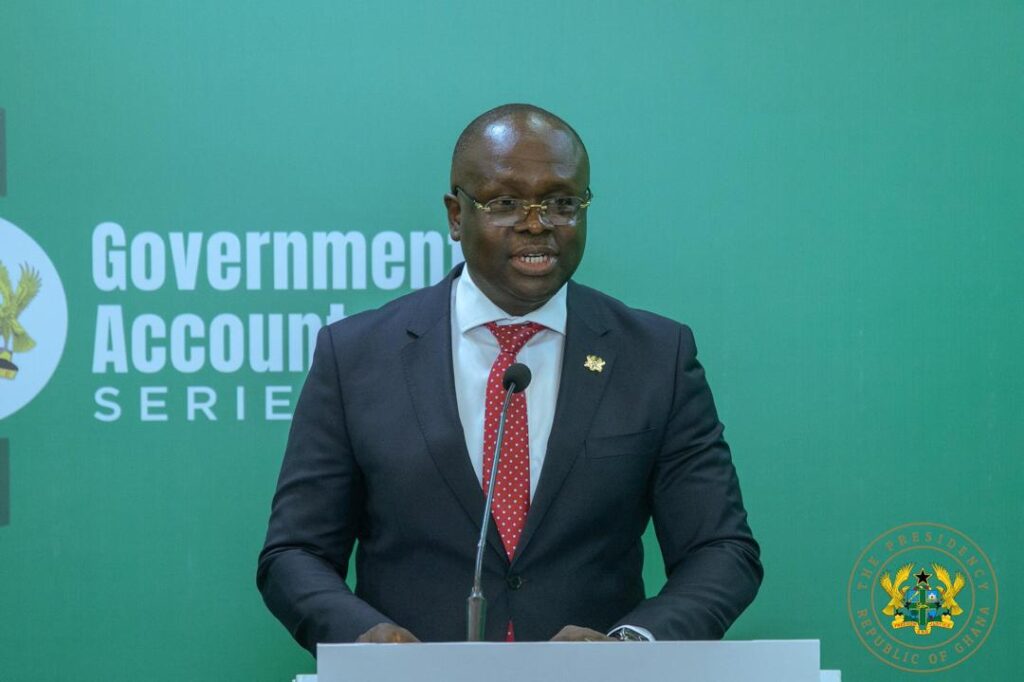
“As we close this chapter and embark on the next, let us recognize that defence goes beyond the boots, barracks, and borders. Because defence affects everything. Security is the seedbed of progress”.
Minister for Defence, Dr Edward Omane Boamah
Calling for unity and a shared sense of national purpose, Dr Boamah declared, “Let our guiding principles be one Ghana, one destiny. May God bless our beloved homeland, Ghana.”
The speech signals a new chapter in Ghana’s defence posture—one rooted in modernization, strategic partnerships, and a people-first approach that sees the Armed Forces not just as protectors of borders, but as architects of national stability and progress.
READ ALSO: CSOs Demand Sunset Clause for Fuel Levy Ahead of Mid-Year Budget Review

